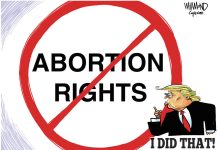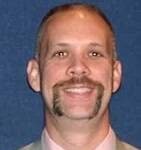Illegal insider trading refers to buying or selling a stock, in breach of a duty of trust and confidence, while in possession of “material, nonpublic information” about the stock. This can also apply if the person possessing the information (the “tipper”) passes along the information to a “tippee,” who then trades the stock.
Steve is treasurer of XYZ Corp., which is in talks to be acquired by ABC Corp. at a 50 percent premium to XYZ’s current price. It is illegal for Steve to buy XYZ. Similarly, if he passes along the information to his brother Bill, who then buys XYZ, that is a violation by both the tipper (Steve) and tippee (Bill).
Unfortunately, there’s no statutory definition of what constitutes illegal insider trading. The law of insider trading has been developed on a piecemeal basis by the courts, with the definition of illegal activity alternately expanding and contracting.
A significant contraction occurred in December 2014, when the U.S. Court of Appeals for the Second Circuit reversed the conviction of hedge fund manager Todd Newman. The court raised the hurdle for proving illegality, mandating: 1. the tipper had to have received a “personal benefit” for providing the confidential information, and 2. the tippee had to know the tipper was receiving that personal benefit.
The SEC filed a complaint May 19 naming Thomas Davis (former chairman of Dean Foods — “Dean”) and Las Vegas-based William “Billy” Walters (widely considered the biggest and most successful sports bettor in the country — see 60 Minutes feature from 2011 at youtube.com/watch?v=d6FAUQ6SFKM) as defendants and three-time Masters champion Phil Mickelson as a relief defendant.
According to the SEC’s complaint (assets.documentcloud.org/documents/2839956/Insider-Case-Against-Gambler– and-Ex-Chairman.pdf), Davis was a director of Dean, who tipped Walters with highly confidential information concerning Dean from 2008 through 2012, including “sneak previews” of at least six of Dean’s quarterly earnings announcements and advance notice of the spin-off of Dean’s subsidiary, WhiteWave (using a prepaid “burner” cellphone provided by Walters and “Dallas Cowboys” as the code word for Dean). Walters, in turn, tipped Mickelson on WhiteWave.
The SEC calculated Walters’ trades in Dean stock reaped illicit profits and avoided losses totaling at least $40 million. Davis pleaded guilty in a related criminal case filed by U.S. Attorney Preet Bharara and is cooperating. Mickelson was not accused of wrongdoing, but the SEC argued he was “unjustly enriched” and must disgorge “ill-gotten gains” plus interest totaling just over $1 million, to which he readily agreed.
According to the SEC, Davis retired from a lucrative career in investment banking in 2001 and joined Dean’s board. Unfortunately, his post-retirement income was unable to maintain his preretirement lifestyle. By 2008, he knew he would soon need a financial lifeline, so he started feeding tips to Walters, a golfing friend for more than 20 years.
On June 18, 2008, Davis allegedly told Walters that Dean was performing ahead of expectations. Over the next three days, Walters bought $73.5 million of Dean’s stock, his purchases accounting for up to an eye-popping 37 percent of Dean’s trading volume on those days. When Dean publicly announced its good news on June 25, 2008, the stock jumped 9.5 percent, netting Walters a cool $6 million profit.
Davis owed gambling debts to Walters. In addition, starting in 2010, Walters provided Davis with almost $1 million in “loans,” including $100,000 to repay a domestic abuse charity he managed and from which he had wrongly taken funds to pay a gambling debt owed to a Las Vegas casino. This constituted the “personal benefit”” received by Davis.
Mickelson also owed gambling debts to Walters. Walters allegedly called Mickelson on, July 27, 2012. The following Monday and Tuesday, Mickelson bought $2.4 million of Dean’s stock in three accounts, which dwarfed the combined $250,000 value of the accounts prior. When Dean announced the spin-off on Aug. 7, 2012, the stock popped 40 percent. “Lefty” sold all of his shares the next day for a profit of $931,000, using some of the proceeds to repay his debt to Walters.
The SEC did not allege Mickelson knew the information furnished to him by Walters came from a breach of a duty of trust by Davis for a personal benefit (i.e. the “Newman” hurdle). Still, he agreed to forfeit $1 million. Because he was not charged with insider trading, Mickelson’s lawyer said, “Phil feels vindicated.”
When asked why Mickelson wasn’t charged, Bharara’s indirect response was “Conduct we think is nefarious, and undermines faith in the market and fairness of the markets, will not be able to be prosecuted because of the Newman decision.” Vindicated?
Mickey Kim is the chief operating officer and chief compliance officer for Columbus-based investment adviser Kirr Marbach & Co. Kim also writes for the Indianapolis Business Journal. He can be reached at 812-376-9444 or [email protected].




